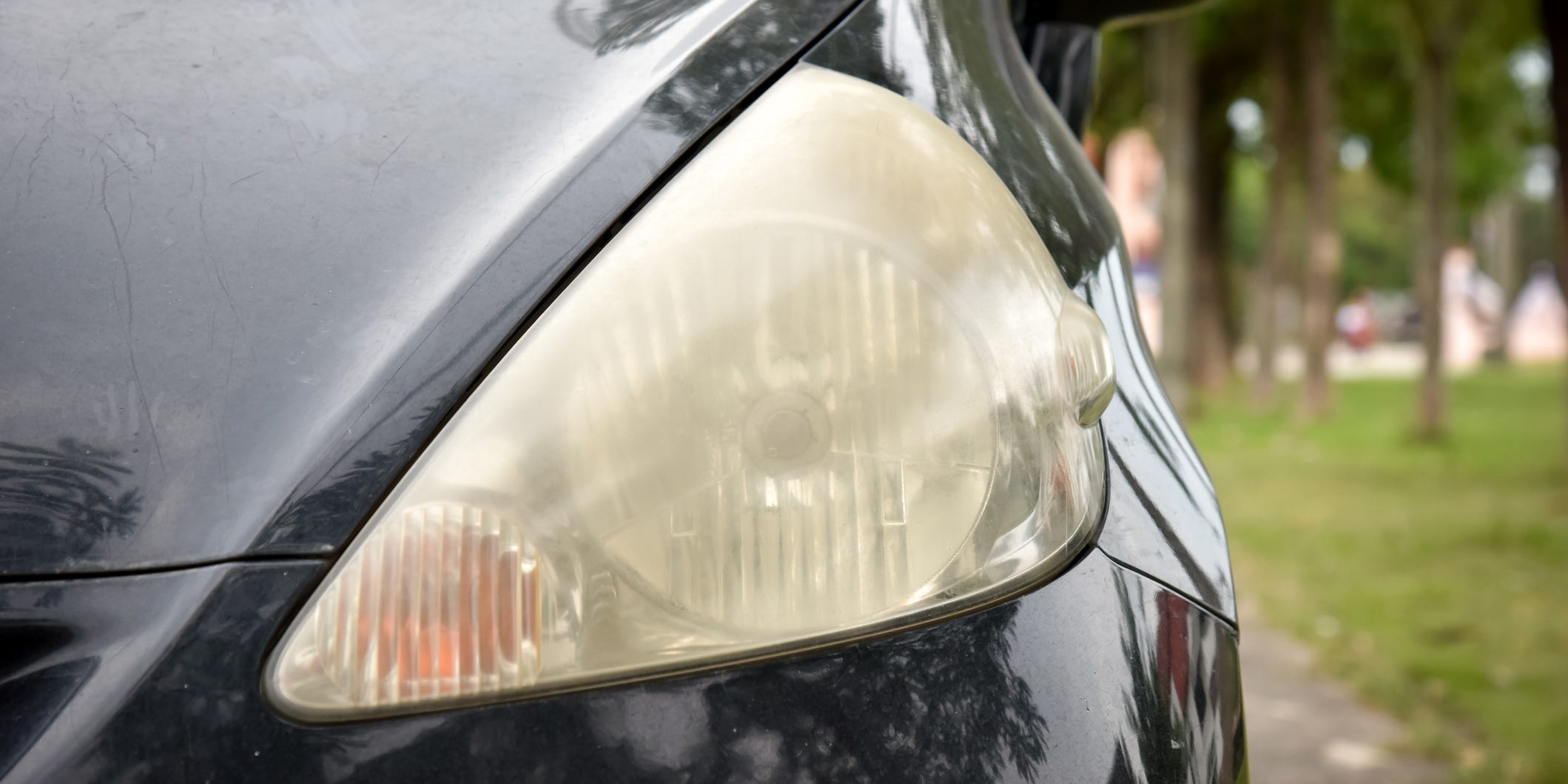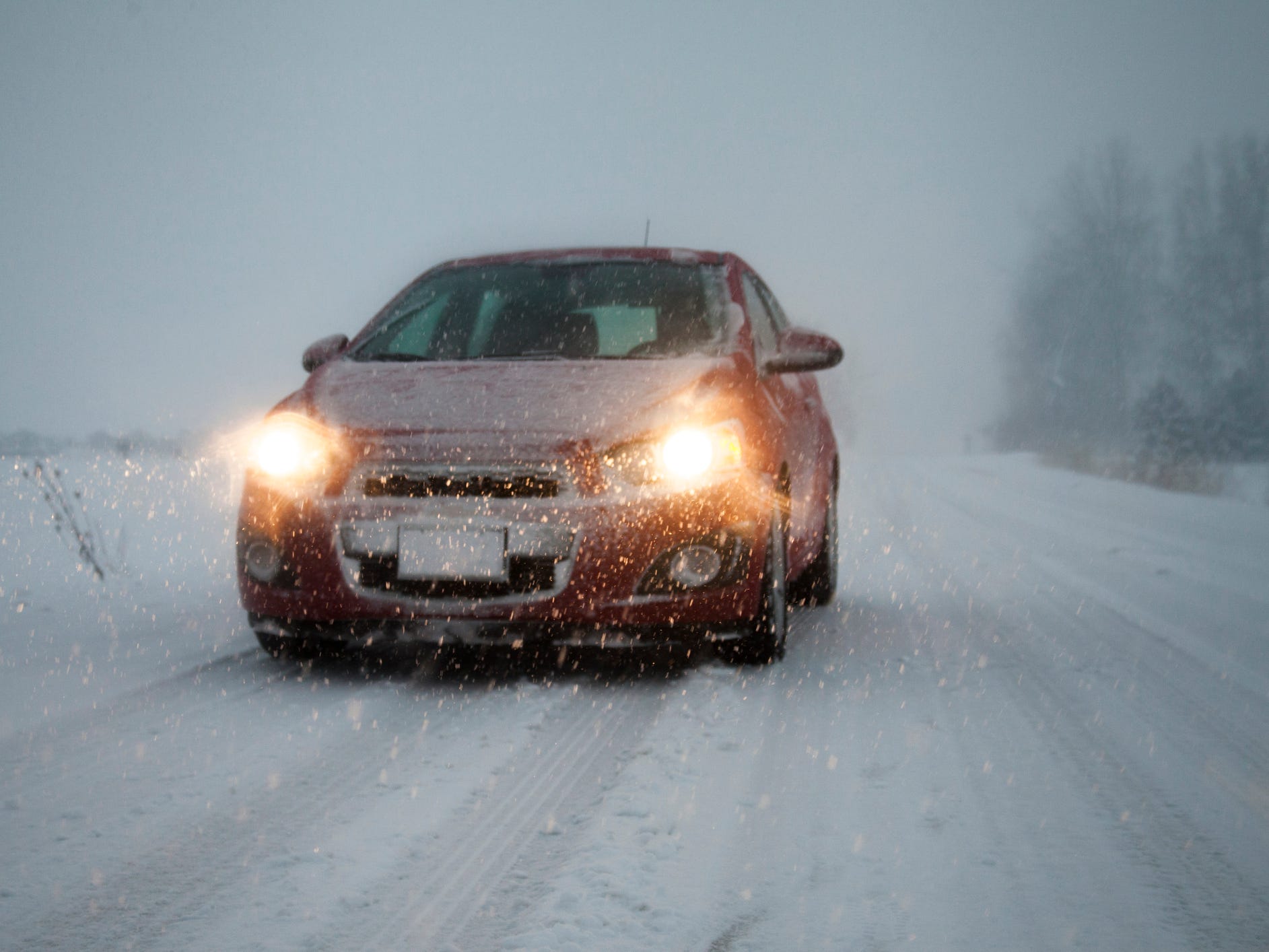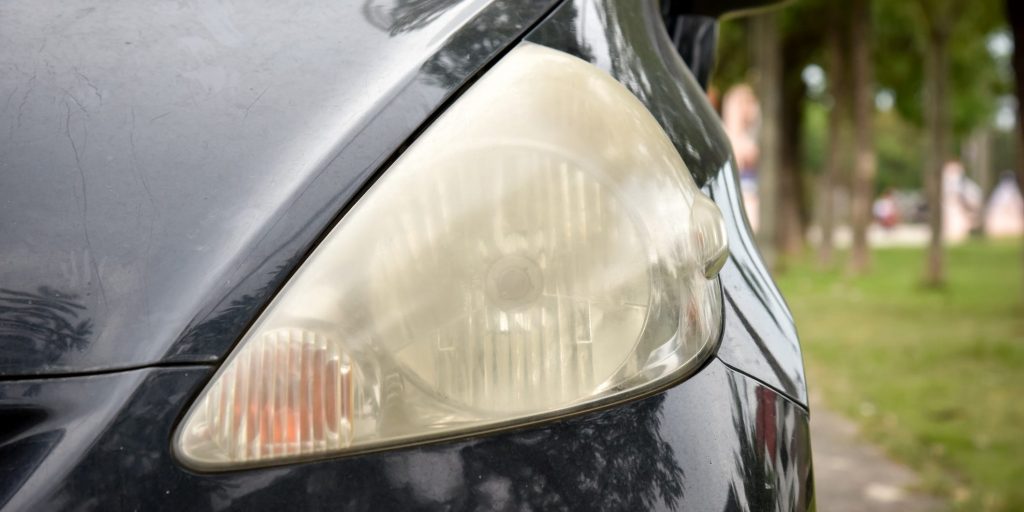
- Foggy or hazy headlights emit less light and make it harder for you to see at night.
- Age, dirt, and UV damage cause plastic headlight lenses to become cloudy over time.
- Headlight restoration kits are inexpensive and easy to use, and home remedies like toothpaste also work.
- Visit Insider's Home & Kitchen Reference library for more stories.
Do you notice your headlights just don't illuminate the road like they used to? Are the headlights cloudy or yellowed? All modern cars have headlights with plastic lenses and replaceable bulbs installed from behind. After years in the sunlight and thousands of miles of driving, UV rays age the plastic lenses, and dirt and wind degrade and damage the surface.
Cleaning and restoring your headlights yourself, either with a homemade abrasive solution of baking soda or toothpaste or with a commercial kit, is an easy way to bring them back to like-new condition.
How to restore headlights using toothpaste or baking soda
If you don't want to spring for a special headlight restoration kit, the common hacks of using toothpaste or baking soda paste can work to clean the lens.
Use painter's tape (which will not harm the car's paint) to tape paper over the paint or bodywork around the headlight. Then wash the headlight with soap and water. Scrub with a toothbrush to remove any dirt, then rinse with clean water.
For the actual headlight cleaner, you can either use toothpaste or a paste made from baking soda and water. Simply work the paste onto the headlight using a toothbrush or cleaning cloth.
Use gentle but firm circular strokes and go over the entire surface several times. Use a bit of water as you do this to keep the surface wet as you apply it. If you use baking soda, wet the cloth you'll use to rub it into the headlight with vinegar for even more cleaning power.
The gentle abrasive qualities of toothpaste and baking soda will gently scrub away any dirt on the headlight, so use a little elbow grease to rub it in. Once thoroughly scrubbed, rinse the headlight with water. Repeat the process with more cleaning paste three to four times, rinsing with water between each application.
Finally, spray on or apply a UV protectant. The lens may be clean but you have to protect the exposed plastic lens or it will become hazy again from UV rays and wear.
How often should you clean your headlights?

If you notice your headlights are yellow, hazy, or foggy, or if it seems like they are not as bright at night, it's time to clean your headlights. Depending on your location and how much you drive in the sunshine, you may start to notice issues once the car is 10 years old.
If you restore your headlights yourself with a restoration kit, you can probably go another five years before they need it again. Some kits come with a lifetime warranty, offering a replacement kit if your headlights become clouded again.
Insider's takeaway
UV rays from the sun cause your headlights to become cloudy and hazy. Restoring them is an easy, do-it-yourself job and only takes an hour. Headlight restoration kits are available that contain everything you need to clean, restore, and protect the plastic lenses of your headlights.
Homemade remedies like using toothpaste or baking soda are also effective in cleaning the lenses, but without proper UV protection, they will become cloudy again within a few months.

